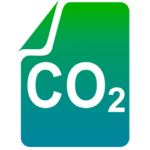
Corporate Power Purchase Agreement (PPA) and Heat Purchase Agreement (HPA)
Corporate PPAs (Power Purchase Agreements) and HPAs (Heat Purchase Agreements) are increasingly popular solutions for companies as a complement to the development of self-consumption and green certificates (GO, RECs, IRECs).
Corporate PPA (Power Purchase Agreement)
A Corporate PPA is an electricity purchase agreement, concluded directly between an energy producer and a consumer company.
In recent years, this form of purchase agreement, historically reserved for very large consumers of grey electricity, has been developed more widely around the world for all types of consumers, especially those wishing to be supplied directly with renewable electricity.
The company makes a commitment to a renewable energy developer or energy supplier to purchase a given volume of electricity at a predefined price (fixed, indexed, bounded, etc.) over a period of 3 to 20 years. In return, it receives the energy produced as well as the associated guarantees of origin, directly participating in the creation of new renewable energy assets or in the continuity of operation of assets that are no longer under the purchase obligation.
The Orygeen team has worked on more than 100 PPAs in 70 countries and has developed software dedicated to the management of this type of contract. We are in constant contact with the market players. Our database of available renewable projects and assets allows us to anticipate developments and build appropriate solutions.
Corporate HPA (Heat Purchase Agreement)
While PPAs are gaining momentum in wind and solar for the supply of green electricity, the migration of heat generation to decarbonised solutions will accelerate the use of HPAs by companies.
In the case of green heat, the production assets (biomass boiler, biomass cogeneration, waste treatment plant, geothermal system, solar thermal…) are necessarily located near the site or on the site. They are connected via a dedicated hot water or steam network.
The Orygeen team has already worked on many projects, participating in the definition and supervision of the production installation as well as in the negotiation of the green heat supply contract.
Increasingly complex energy procurement strategies
One of the challenges of energy procurement is the volatility of the markets. A company’s energy costs often vary more as a result of market volatility and the price of its energy purchases than as a result of its energy efficiency actions.
Effective purchasing policies seek to buy energy at the best time while diversifying risk.
The purchasing strategy must be built by integrating environmental objectives, risk management policy and operational needs.
Energy procurement is a new expertise that cannot be reduced to the knowledge of market suppliers, the development of tenders and the negotiation of a contract.
Aware that an efficient energy purchasing policy is based on the definition of an appropriate strategy, the structuring of a multi-source supply, the knowledge of local regulations and the ability to anticipate future developments, Orygeen assists its clients in building their roadmap towards 100% renewable energy on a French, European or global scale and in implementing this transition :
1.
Validate the constraints and objectives
2.
Establish the strategy
3.
Structuring the supply and the interfaces between contracts
4.
Design a set of specifications
5.
Identify suitable suppliers
6.
Managing a call for tenders
7.
Conducting contract negotiations
8.
Supervise and optimise the supply contract over time
9.
Manage the portfolio and monitor the total energy cost






